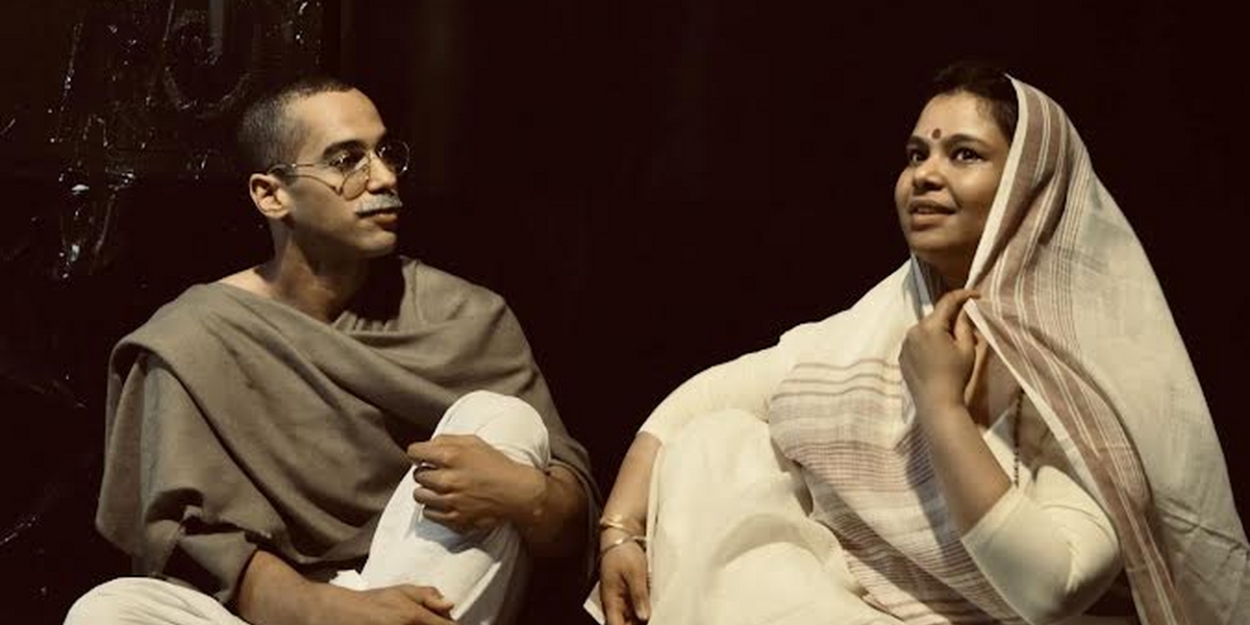New Play Tells Story of Kasturba Gandhi and Indian Independence
Performances run from June 13 to June 30.

Theater for The New City will present "Kasturba v/s Gandhi," a compelling new play that delves into the life of Kasturba Gandhi, an Indian revolutionary and spouse of Mahatma Gandhi, directed by Rupaalii Sonwani and written by Nishi Chawla.
Running from June 13 to June 30, this groundbreaking production sheds light on the remarkable woman behind the iconic figure of Mahatma Gandhi, exploring themes of feminism, empowerment, and resilience.
It tells the story of one woman's independence and her role in India's independence itself.
Rupaalii Sonwani, a talented actor, writer, and director, makes her directorial debut in New York City with this significant production. "Kasturba v/s Gandhi" offers a poignant narrative that resonates deeply with the struggles faced by women in a patriarchal society, serving as a beacon of hope and inspiration.
"I'm thrilled to be directing 'Kasturba v/s Gandhi,' a play that showcases the strength and resilience of Kasturba Gandhi," Sonwani said. "It's a story that is both empowering and relevant, highlighting the importance of women's voices in history."
The production features a stellar cast, including Rupaalii Sonwani as Kasturba; Mehdi Hadim as Mahatma Gandhi;Drishti Manju as Mrs. Nayyar; Ajay Bhullar as Hari Lal and Bella Kouds as Mira Behn
The show is produced by Geetaa Productions with the help and support of Theater for the New City Executive Creative Director Crystal Field.
This production promises to be a thought-provoking and enlightening experience for audiences, telling the story of a woman who was a key force in India's politics.
In addition to providing an entertaining production, "Kasturba v/s Gandhi" has the potential to become a significant cultural milestone, shedding light on the often overlooked contributions of Kasturba.
By presenting her story, the play aims to challenge the traditional narrative that has predominantly focused on Mahatma Gandhi, revealing the complexities and nuances of their relationship.
The production seeks to spark conversations about the role of women in history and their contributions to societal change. And it seeks to encourage audiences to reconsider the narratives they've been taught, recognizing the significant yet underappreciated impact of Kasturba and other strong women of that era, such as Mira Ben and Mrs. Nayar.
"Kasturba v/s Gandhi" also seeks to teach audiences about the human side of Mahatma Gandhi, acknowledging his flaws and the sometimes harmful impact of his ideologies on his family.
The play highlights how Kasturba, despite being uneducated and financially dependent, stood against injustice and even corrected Gandhi when necessary. Her story can serve as a powerful example of moral strength and the impact of women in shaping history.
"Kasturba remains largely unknown to the public, often overshadowed by her husband's legacy," Rupaalii Sonwani. "Many of Gandhi's ideologies were influenced by her, yet her contributions and struggles are rarely acknowledged."
She supported Gandhi and their cause with unwavering moral strength, despite her lack of formal education and financial independence.
"Through this play, we aim to reveal the significant role she played, not just as Gandhi's wife, but as a strong, independent individual who made substantial contributions to society," said Sonwani. Kasturba Mohandas Gandhi, born Kasturbai Gokuldas Kapadia in May 1869, married Mahatma Gandhi at the age of 14 in a marriage arranged by their parents.
By 1904, when they lived in South Africa, Mahatma, Kasturba, and others set up the Phoenix Settlement near Durban. In 1913, she was arrested and imprisoned for protesting against the poor treatment of Indian immigrants in South Africa as the couple fought for justice and against the conditions under which many Indians lived at that time.
While in prison, Kasturba led other women in prayer and encouraged educated women to teach the uneducated how to read and write. The Gandhis returned to India in 1914, where they both took part in protests and civil actions. In 1917, she taught women hygiene, discipline, health, reading, and writing, participating in nonviolent resistance in the upcoming years for which she was repeatedly jailed.
"As my public life expanded," Mahatma Gandhi said, "my wife bloomed forth and deliberately lost herself in my work."
Their work led to change and consequences for bot, as they faced the repercussions of pushing for revolutionary change.
After 1939's protest against British rule in Rajkot, Kasturba was arrested and kept in solitary confinement for a month, only to be arrested again in 1942 along with Mahatma for their role in the Quit India movement.
This play presents Kasturba, but also Mahatma Gandhi through the lens of the women closest to him, showcasing his human side and the complexities of his relationships.
By highlighting the powerful side of Kasturba and other strong women of that era, "Kasturba v/s Gandhi" offers a fresh perspective on Gandhi's life and legacy, emphasizing the importance of understanding historical figures as complex, multifaceted individuals.
"Join us at Theater for The New City to witness the untold stories of resilience and strength," Sonwani continued. "Celebrate the legacy of Kasturba and the empowerment of women worldwide."
Comments
Videos

